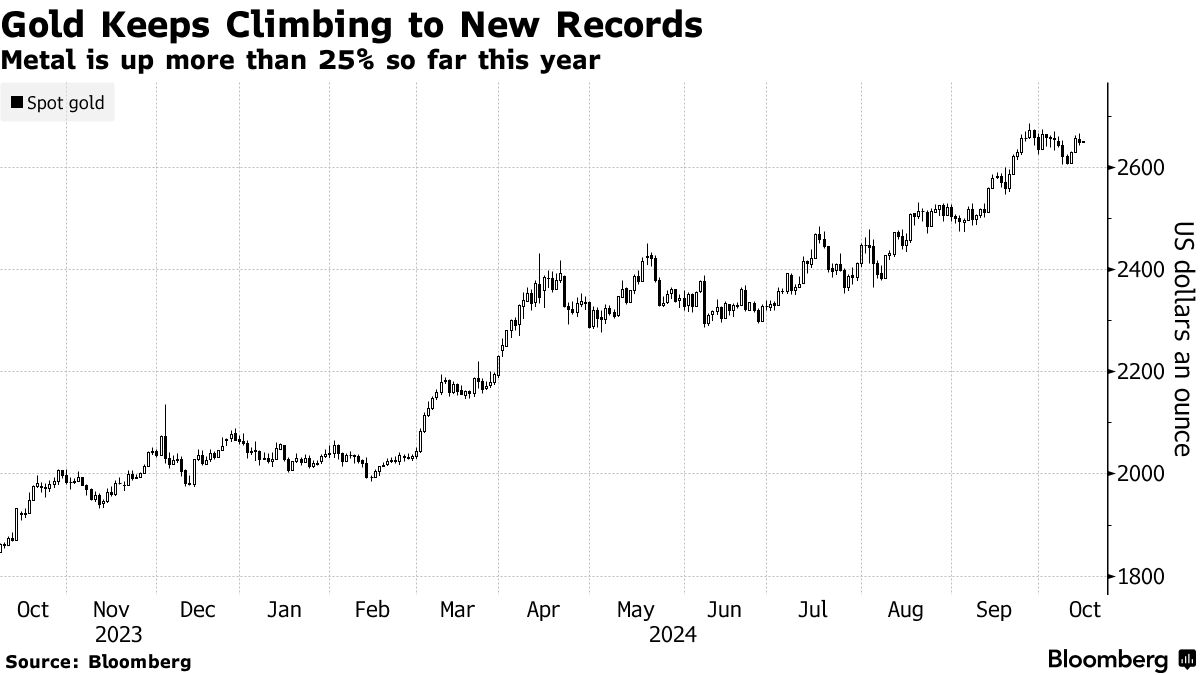A rare statement from a senior central bank official: supporting an increase in gold reserves
Central banks' purchases of gold are the main driving force behind the record surge in gold prices this year. But officials seldom give early signals to buy gold.
On Monday, reserve managers from the central banks of Mexico, Mongolia, and the Czech Republic broke the situation and sang praises for increasing their gold holdings.
The reviews provide unique insight into how they view gold. Officials say the share of gold in their national reserves is more likely to increase in the next few years due to the combination of heightened geopolitical tension and lower interest rates.
Joaquín Tapia (Joaquín Tapia), the Bank of Mexico's director of international reserves, said: “Given the context we are facing now — lower interest rates, political tension, the US election, many uncertainties — maybe gold's share in our investment portfolio will also increase.”
The Bank of Mongolia's Enkhjin Atarbaatar and the Czech Central Bank's Marek Sestak agreed with Tapia's statement. The three officials spoke together in a panel discussion at the London Bullion Market Association's annual industry conference in Miami.
Atarbaatar (Atarbaatar), Director General of the Financial Markets Department of the Central Bank of Mongolia, said, “As far as Mongolia is concerned, I expect that gold reserves will continue to grow, and I also expect that the share of gold in our reserves may increase in the future.”
Sestak, Deputy Executive Director of the Risk Management Division of the Czech Central Bank, replied: “I agree completely.”

So far in 2024, the price of gold has soared by more than 25%, outperforming the US stock market and bonds, and has continued to rise to record highs.
The amount of gold purchased by central banks has reached an unprecedented level, which has contributed to a certain extent to the rise in gold prices, as reserve managers seek the safety of precious metals to protect the country's wealth from geopolitical and economic uncertainty.
Terrence Keeley (Terrence Keeley), CEO of Impact Evaluation Lab (Impact Evaluation Lab), said that according to market estimates, an average of 15% of the central bank's foreign exchange reserves are precious metals. Keely was a senior executive at BlackRock and was responsible for overseeing the company's relationships and services with central banks and sovereign wealth funds.
 Index Options
Index Options CME Group
CME Group Nasdaq
Nasdaq Cboe
Cboe TradingView
TradingView Wall Street Journal
Wall Street Journal